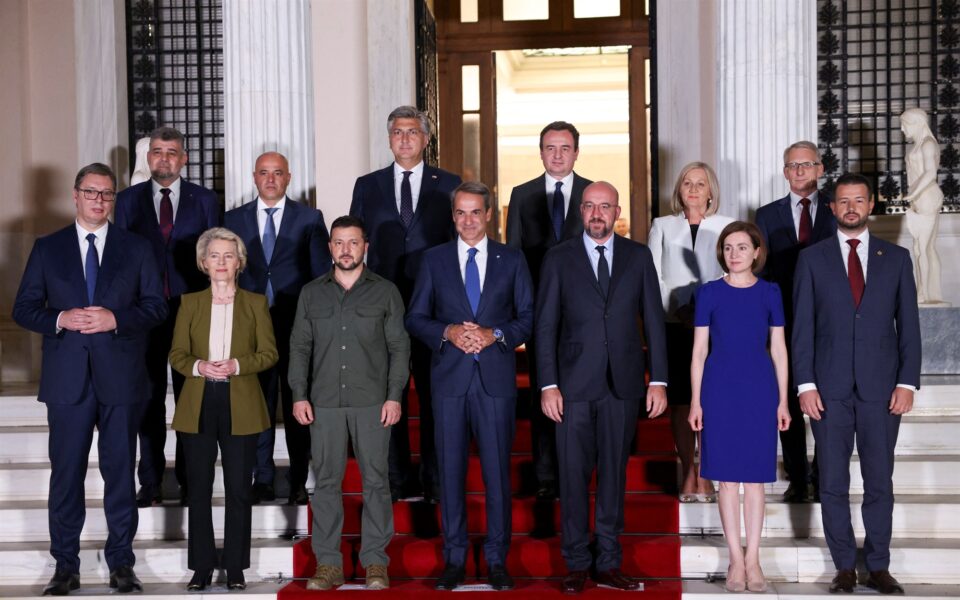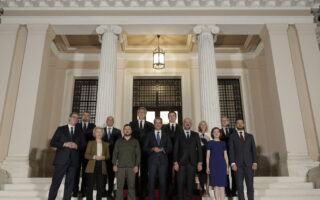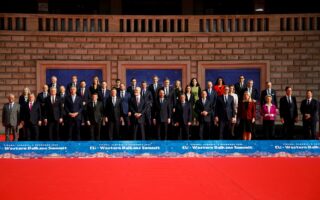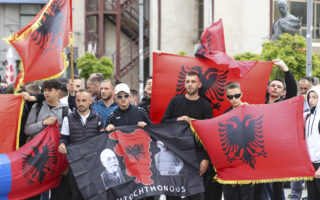Rejuvenating a vision

The recent gathering of Western Balkan leaders along with top European Union officials in Athens, following an invitation from Greek Prime Minister Kyriakos Mitsotakis (on the 20th anniversary of a summit between the EU and Western Balkan countries in the northern port city of Thessaloniki) was naturally overshadowed by the previously unannounced presence of Ukrainian President Volodymyr Zelenskyy.
If there was any gain for the attendees of the dinner in the Greek capital, it was the revival of the aspirations of Western Balkan countries (Albania, North Macedonia, Montenegro, Serbia, Kosovo, Bosnia and Herzegovina), who have been in the waiting room awaiting their integration into the European family at an uncertain point in the future.
The reality is that over time, the initial enthusiasm waned, and European partners are trying to keep the hope alive through meetings like the one in Athens, financial support, reform funding, rhetorical assurances and so on. Prospects remain poor for the aspiring countries, despite the fact that the Russian invasion of Ukraine is pushing the societies of the Western Balkans toward the west.
The reality is that, over time, the initial enthusiasm waned, and European partners are trying to keep the hope alive through meetings like the one in Athens
For both Europeans and Americans, shifting priorities now encompass regions like the Baltics, Ukraine, Moldova and the Black Sea coast, which have entered the equation of the Western security framework. Naturally, the repercussions of the Ukrainian crisis are rippling through the vulnerable and precarious ethnic and intergovernmental tensions in the Western Balkans. Addressing these tensions is a prerequisite for these nations’ integration into the EU. It is evident to Europeans that none of the candidates can become a member without first addressing their problems and historical disputes with neighbors or other nations.
This implies that Kosovo and Serbia will remain in limbo until they agree to mend their relations. Bosnia and Herzegovina will also fail to make progress as long as Serbs, Croats and Bosniak Muslims do not embrace peaceful coexistence within a unified state. Likewise, North Macedonia’s hopes hinge on recognizing a Bulgarian minority within its borders, as demanded by Sofia. Similarly, Albania will need to act on the rights of its ethnic Greek minority if it wants to move closer to the EU, as Athens has threatened to veto its membership prospects due to the detention of ethnic Greek mayor-elect Fredi Beleri in the southern town of Himare.
On top of all these complexities, the aspiring Balkan nations must undertake the arduous reforms dictated by Brussels in their economies and legal systems. This alignment or approximation to the European acquis is crucial.
As for Athens, let us embrace its initiative as an opportunity to “reassert Greece’s leadership role as a bastion of stability in the Balkans and Southeast Europe,” a status which primarily relies on developments in the energy sector.





